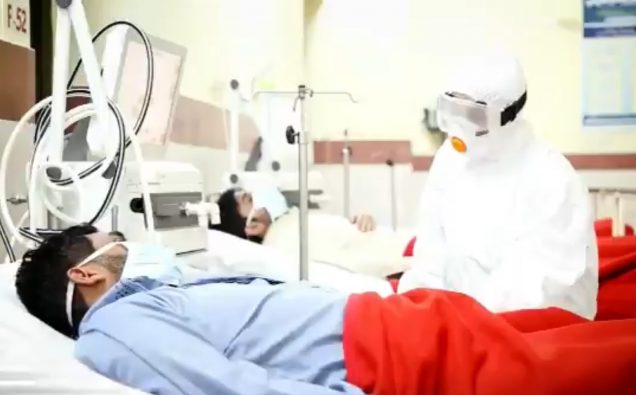
Can transfusion of plasma from the body of a person who has recovered from COVID-19, be a magical cure for averting coronavirus infection?
There is still very little empirical evidence to prove this proposition, one way or the other. But in countries like Pakistan where healthcare infrastructure is too weak to deal with COVID-19 pandemic, plasma from the recovered patients is becoming the most sought-after commodity.
While some recovering patients are ready to donate blood out of common humanity, the news about the treatment has led to a black market for the purchase and sale of the plasma. WhatsApp and email inboxes are replete with such offers from the recovered corona patients.
The price per pint of plasma ranges from Rs 300,000 to Rs 600,000. Federal and provincial governments in Pakistan are repeatedly warning the people that Convalescent Plasma Therapy (CPT) is still an experimental model of treatment and its sale and purchase is illegal.
“We have recently enforced a law to discourage the trade of plasma as it is unethical to sell or purchase human organ or blood,” says Dr. Adnan Ahmad, head of Human Organs Transplantation Authority (HOTA), a government body that oversees the transplantation issues in Pakistan’s Punjab province.
Under the law, anybody dealing in the illegal trade of human organs or blood can face imprisonment ranging from one year to 10 years besides heavy fines.
But these stringent laws are not enough to deter some people from indulging in the illegal trade.
On top of everything, some doctors are still prescribing the therapy to critically ill patients of the disease.
There are many issues related to the procurement of the plasma.
The question arises, as a donor, is it ethical to profit off of selling plasma to a patient in severe need?
Especially in a country where blood safety laws are not stringent. Free for all transfusion can prove disastrous, causing the spread of other diseases too. In 2010, Pakistan initiated a string of countrywide blood safety reforms with provincial efforts to improve blood safety by enacting a regulatory framework and forming blood safety authorities.
Under the laws, provincial blood safety authorities regulate the safe supply, and use of blood components including plasma. Typically, the authorities are headed by provincial ministers of health, according to the rules.
The rules lay out that broadly blood safety laws apply to all hospitals and clinical units, public or private, involved in the blood transfusion chain including plasma. This means the collection, testing, screening, and issuing of plasma for transfusion is strictly regulated, or at least it’s supposed to be. In theory, provincial authorities are responsible for ensuring prescribed standards in blood safety are met. Any violations by hospitals or clinical units can lead to suspensions or de-licensing.
Pakistanis came to know about passive immunity or Convalescent Plasma Therapy with the announcement of Pakistan’s first Corona Virus patient, Yahya Jaffery after his recovery. Now doctors claim of recovery of a 53-year old patient in the port city of Karachi through plasma therapy further jacked the hopes of the people regarding the new therapy.
“The body of a COVID-19 patient creates antibodies to fight off the virus. These antibodies in the blood of a recovered patient could be used to boost the immunity of the newly infected people,” says Dr Tahir Shamsi, the head of National Institute of Blood Diseases.
The concept called “passive immunization” was introduced in 1890 in a situation when there is a high risk of infection and insufficient time for the body to develop its own immune response, or to reduce the symptoms of ongoing or immunosuppressive diseases.
But healthcare officials say a few positive results should not lead to a widespread use as the trial treatment is under way in about a dozen of hospitals across Pakistan including at three hospitals in eastern city of Lahore i.e. Mayo Hospital, Lahore General Hospital and Sir Ganga Ram Hospital.
” People need to be careful while opting for this therapy as it is only at the trial stage,” warns Special Assistant to Prime Minister, Dr.Zafar Mirza.
Health experts say only a successful vaccine can prove a panacea for the disease in the days to come.

















